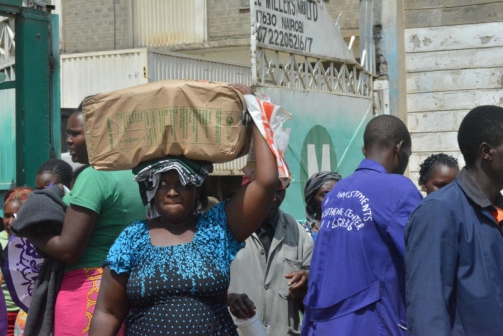×
The Standard e-Paper
Join Thousands Daily

A retailer leaves the Mombasa Maize Millers premises in Industrial Area, Nairobi, with a bale of maize flour. Retailers and consumers were each allowed one bale at a cost of Sh1,000. [David Gichuru, Standard]
The Government has announced a reduction of sugar and milk prices as it attempts to push back the rising cost of basic food items.